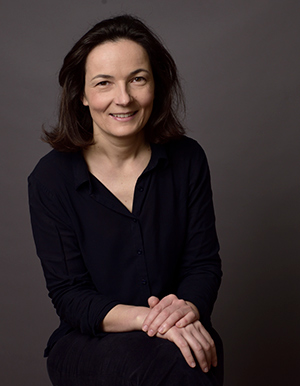Raquel Sá-Leão Lab

Research Interests
The human microbiota consists of all the microbes that live in and on the human body. To improve our understanding of human health and disease, we need to gain a deeper knowledge on the intra- and interspecies bacterial interactions, and host-bacteria interactions that occur in the human body influencing which species and strains persist in it.
In our group we are focusing on the nasopharyngeal ecosystem, a rich niche frequently inhabited by potentially pathogenic bacteria such as Streptococcus pneumoniae (or pneumococcus), Haemophilus influenzae, and Moraxella catarrhalis. Colonization by these bacteria, which is typically asymptomatic, is particularly frequent among young children. Although disease per se is incidental in the lifestyle of these bacteria, the burden of disease caused by them is substantial worldwide.
In recent years, multivalent pneumococcal conjugate vaccines, targeting a limited subset of the circulating pneumococcal capsular types have been introduced in several countries. We are studying how these vaccines, together with antibiotic use, impact on the pneumococcal population and on the nasopharyngeal ecosystem as a whole. Depending on local vaccine coverage, antibiotic use, circulating strains and relationship between competitors, different outcomes in colonization and disease overall may be observed. Our studies are contributing to estimate the medium and long-term public health impact of the use of vaccines and antibiotics.
Group Members
- Alexandra Simões, PhD, Project Manager
- Ana Cristina Paulo, Post Doc
- Carina Valente, Post Doc
- Catarina Candeias, Post Doc
- Sónia Almeida, Post Doc
- Bárbara Ferreira, PhD student
- Joana Bryton, PhD student
- João Borralho, PhD student
- João Lança, PhD student
- Mariana Caleiro, Research fellow
- Sofia Dias, Research fellow
- Susana Morais, Research fellow
- Joana Correia, Master student
- João Santos, Master student
Selected Publications
- Borralho J, S Handem, J Lança, B Ferreira, C Candeias, AO Henriques, NL Hiller, C Valente, R Sá-Leão. 2025. Inhibition of pneumococcal growth and biofilm formation by human isolates of Streptococcus mitis and Streptococcus oralis. Appl Environ Microbiol. 2025 Feb 26:e0133624. doi: 10.1128/aem.01336-24.
- Candeias C, ST Almeida, AC Paulo, AS Simões, B Ferreira, AR Cruz, M Queirós, T Touret, A Brito-Avô, H de Lencastre, R Sá-Leão. 2024. Streptococcus pneumoniae carriage, serotypes, genotypes, and antimicrobial resistance trends among children in Portugal, after introduction of PCV13 in National Immunization Program: A cross-sectional study. Vaccine. 2024 Sep 17;42(22):126219. doi: 10.1016/j.vaccine.2024.126219.
- Paulo AC, J Lança, ST Almeida, M Hilty, R Sá-Leão. 2023. The upper respiratory tract microbiota of healthy adults is affected by Streptococcus pneumoniae carriage, smoking habits and contact with children. Microbiome. 2023 Sep 2;11(1):199. doi: 10.1186/s40168-023-01640-9
- Candeias C, S Félix, S Handem, H de Lencastre, R Sá-Leão. 2023. Clonal changes in the pneumococcal population carried by Portuguese children during six years of private use of the 13-Valent Pneumococcal Conjugate Vaccine: the relative contribution of clonal expansion, clonal emergence, and capsular switch events. Microbiol Spectr. 11(2):e0290922. doi: 10.1128/spectrum.02909-22.
- Miellet WR, ST Almeida, K Trzciński, R Sá-Leão. 2023. Streptococcus pneumoniae carriage studies in adults: Importance, challenges, and key issues to consider when using quantitative PCR-based approaches. Front Microbiol.14:1122276. doi: 10.3389/fmicb.2023.1122276.
Laboratory's Webpage
For further information visit the laboratory's website (soon available)
Microbiologia Molecular de Patogéneos Humanos (PT)
A microbiota humana é constituída por todos os microorganismos que vivem no corpo humano. Estes microorganismos interagem entre si e com o hospedeiro contribuindo para o estado de saúde do indivíduo.
O objectivo principal do nosso grupo é o estudo da microbiologia da nasofaringe, um nicho ecológico que é frequentemente colonizado por bactérias potencialmente patogénicas entre as quais se encontram os pneumococos. Em particular, estamos interessados em compreender de que forma intervenções como o uso de vacinas e antibióticos afetam este ecossistema, a saúde do indivíduo e, em última análise, a saúde pública.









